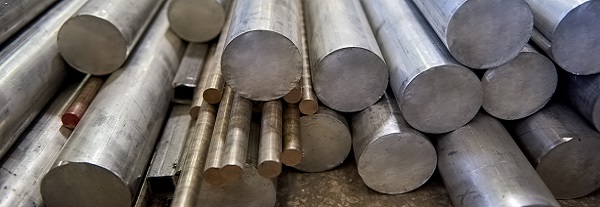
- Material
-
- Aluminium 61
- Brass 8
- Stainless Steel 8
- Galvanised Steel 1
- Mild Steel 1
Aluminium tooling plate is a highly useful material for many construction projects, particularly due to its stability, easy machinability and high strength-to-weight ratio.
When it comes to choosing the best aluminium tooling plate for the job, there are a few factors to consider in making sure you find the most suitable option.
Here, we'll discuss the different styles of aluminium tooling plate available, giving you a better idea of which to choose for your next project.
Although somewhat similar in appearance, aluminium plate and aluminium tooling plate are different aluminium products. Aluminium plate is made through rolling, while tooling plate undergoes other specialised treatments for enhanced flatness and dimensional stability.
Tooling plate provides particularly good stability when machined, even if it is being machined across large areas. Amongst other things, it is ideal for moulds and casts. One other factor that sets aluminium tooling plate apart is that both surfaces are protected with a layer of PVC, preventing damage during cutting and transportation.
Aluminium tooling plate is available in a range of alloys and thicknesses, these are two of the most important things to be aware of when choosing the right aluminium tooling plate for the job in hand.
There are various grades available when it comes to aluminium tooling plate. These are represented in 'series' and represented by numbers (e.g., alloy 5083 is part of the 5000 series). Each series is mixed with a different alloy.
Here are the characteristics of some of the most popular alloy series:
Aluminium in the 5000 series is alloyed with magnesium. This makes it highly corrosion resistant, even when exposed to saltwater.
5000 series alloys are commonly used in the construction of transportation vehicles, such as automotive parts, truck bodies, and trailers. They are also utilised in architectural applications, consumer electronics, and general sheet metal work where corrosion resistance is required.
One important thing to know about 5000 series alloys is that they are not heat treatable. Heat treatability refers to the ability of an alloy to be strengthened through heat treatment processes such as solution heat treatment and ageing.
This is the alloy series that we stock for our aluminium tooling plate at Click Metal.
The 6000 series alloys are primarily composed of aluminium with additional elements, such as magnesium and silicon.
These alloys don't have as much corrosion resistance as 5000 series alloys but they offer a good balance of strength and formability, making them versatile for various applications. Some alloys in this series are heat treatable.
Alloys in the 6000 series are often used in structural components, the automobile industry and the aerospace industry.
The 7000 series alloys are primarily composed of aluminium with zinc as the primary alloying element. Copper is often added as a secondary alloying element to further enhance the strength and other properties.
7000 series alloys are known for their exceptional strength-to-weight ratio. They exhibit high strength, which is comparable to many steels. The strength of these alloys can be further enhanced through heat treatment processes.
The 7000 series aluminium alloys find application in various industries where high strength, durability, and lightweight properties are required. They are commonly used in the aerospace industry, sporting goods manufacturing and high-stress applications like high-performance automobiles, marine structures, and defence equipment.
Find out more by reading our Guide to Aluminium Grades.
Aluminium tooling plate is available in a range of thicknesses. At Click Metal, we offer thicknesses ranging from 5 – 150 mm.
The decision to choose thicker or thinner aluminium tooling plate depends on various factors. Thicker plate options provide greater strength and load-bearing capacity, making them suitable for applications requiring structural integrity and the ability to withstand heavy loads.
Thicker plates also offer better stability during machining and fabrication processes. However, they are heavier and more expensive.
On the other hand, thinner plate options offer weight savings, making them advantageous for applications where weight is a critical consideration, such as in aerospace or automotive industries. Thinner plates are also more cost-effective.
Additionally, the thermal conductivity and heat dissipation properties of thicker plates may be beneficial for applications involving heat transfer.
When buying aluminium tooling plate you can also choose from a range of surface finishes and treatments to achieve different aesthetic or structural benefits. Some of the most popular include:
A painted finish on aluminium involves the application of a coating of paint or liquid finish to the surface of the aluminium. This finish provides both an aesthetic appearance and protection against corrosion, weathering, and wear. The paint can be applied in various colours and finishes to achieve the desired look and performance.
A powder coated finish on aluminium involves applying a dry powder coating to the surface, which is then cured under heat to form a durable and decorative finish. This finish offers a wide range of colours, textures, and finishes, providing both aesthetic appeal and enhanced protection against corrosion, UV rays, and abrasion.
An anodised finish is created through an electrochemical process that forms a protective oxide layer on the surface. This finish enhances corrosion resistance, improves surface hardness, and can provide a decorative appearance. Anodising can be performed in various colours, offering both functional and aesthetic benefits to the aluminium surface.
We hope this guide has given you a better understanding of aluminium tooling plate to help you feel more informed when planning your next project.
Our aluminium tooling plate is available cut to size, based on the specifications of your project, with all orders despatched within 3 – 5 working days.
If you have any further questions, or there's anything else you'd like to know, don't hesitate to get in touch with us by phone on 01794 526090 or by filling out our contact form.